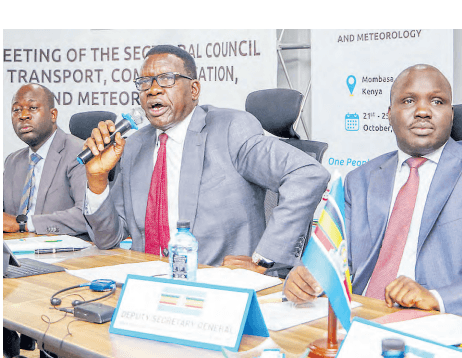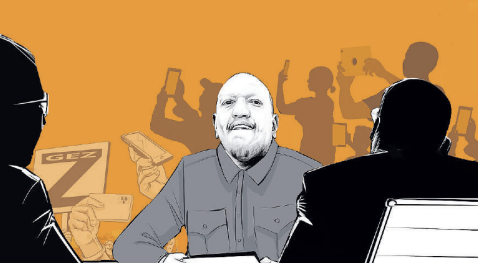

Even after a pause in street protests, Gen Z remains a thorn in the flesh of President William Ruto due to sustained anti government attacks on social media platforms.
These social media critiques seemingly have rattled the Kenya Kwanza administration and its allies, who are scrambling for strategies to counter this trend.
Recently, Mining, Blue Economy and Maritime Affairs Cabinet Secretary Hassan Joho dismissed these critics as unpatriotic, arguing, “the country cannot run through social media.”
Similarly, Kapseret MP Oscar Sudi, a close ally of the President, called for the government to ignore the criticism on social media.
But contrary to Joho’s claims, social media criticism is not unpatriotic—it is a reflection of public concern and patriotism.
Ignoring these voices would be a self inflicted wound for the government.
There is a prevailing belief within government circles that the rejection of the Finance Bill 2024—that led to widespread Gen Z-led protests earlier this year—was due to ineffective communication.
Proponents of this narrative argue that the public misunderstood the Bill’s “good provisions” due to poor messaging.
This argument can easily be interpreted to insinuate that Kenyans lack the ability to comprehend policy unless spoon-fed by politicians, which is both patronising and misleading.
This belief has recently spurred a flood of press releases from the government, attempting to control the narrative for every action taken by various agencies.
On some days, more than 10 press releases are issued, creating an overwhelming attempt to shape public perception.
However, such tactics are outdated.
This generation—especially Gen Z—is less interested in staged photo ops and more focused on accountability.
For instance, they question how a President earning Sh1.5 million a month can donate Sh5 million in church—a sum equivalent to four months’ salary—in a single day.
Even businesses are struggling to connect with this tech-savvy demographic.
Studies reveal that Gen Z values meaningful engagement and customer experience over brand loyalty.
The government should take a cue from this and refine its communication strategy.
Press releases and tribal loyalty, which worked for previous administrations, no longer resonate.
Gen Z demands transparent, two-way communication and satisfactory explanations for government actions and policies.
Public participation is not just a constitutional pillar; it is a national value and principle of governance.
After the protests, President Ruto initiated town hall meetings to explain government policies.
While these meetings were a step in the right direction, they fell short because the head of state appeared combative and defensive rather than listening and acting on the suggestions from young people.
One blind spot for State House communication advisers, if any exist, is the growing clamour on social media for leaders such as former Cabinet Secretary Fred Matiang’i, former Chief Justice David Maraga and Busia Senator Okiya Omtatah to run for president in 2027.
This reflects Kenyans’ yearning for results oriented leadership, integrity and strict adherence to the rule of law.
Matiang’i is remembered for his bulldozing approach to delivering tangible results.
Maraga is revered for his firm stand against corruption, which not only kills the economy but also denies deserving Kenyans opportunities.
Omtatah has won public admiration for his relentless fight for the rule of law.
By evoking these names, Kenyans are offering a clue about their frustrations and expectations.
They want a government that delivers transformative projects, fights corruption decisively and respects the rule of law by obeying court orders and ending kidnappings and human rights abuses.
The government’s focus on controlling narratives rather than addressing root issues has created a credibility gap.
Kenyans are tired of rhetoric and demand visible progress on bread-and-butter issues like employment, healthcare and education.
Empty promises and flashy announcements only deepen public frustration.
LEONARD ONYANGO
Journalist and public relations consultant | [email protected]













